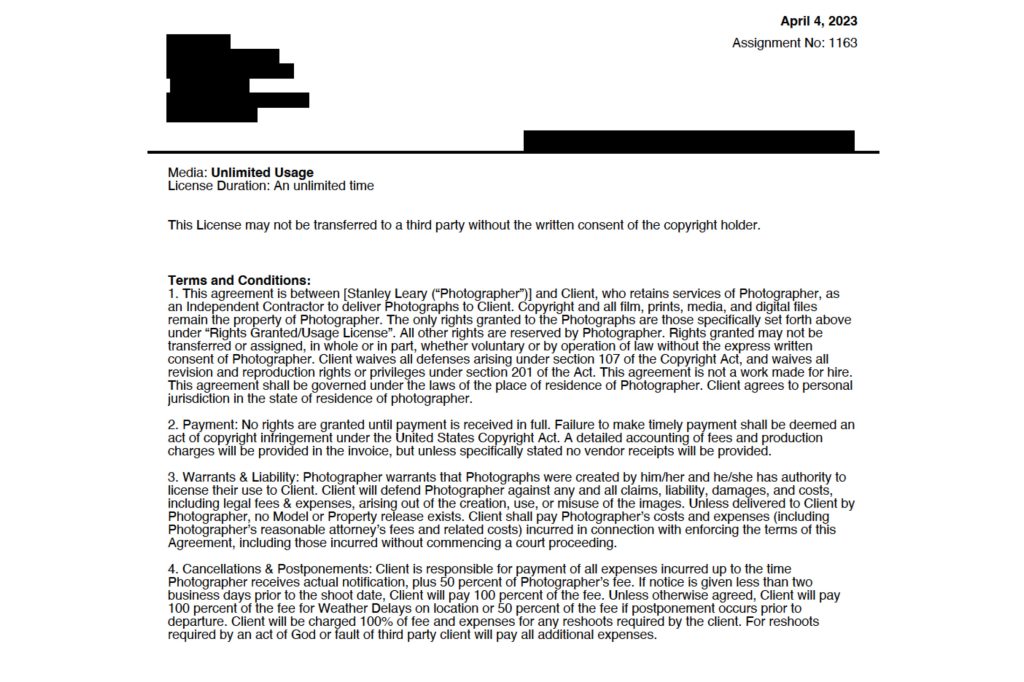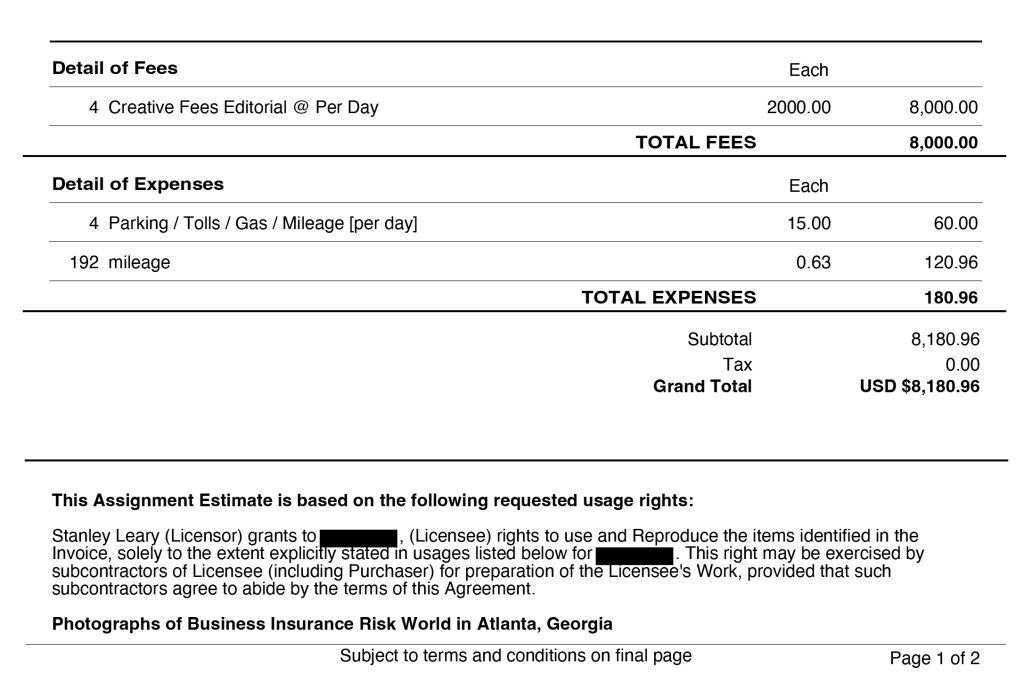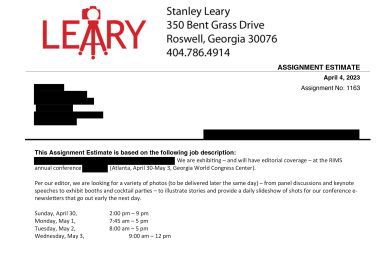Starting in any creative business can be daunting. Whether you’re a photographer, videographer, writer, or any other creative professional, there’s often a sense of trepidation regarding contracts. It’s understandable. Legal jargon can be intimidating, and formalizing agreements with clients can seem like overkill, especially when you’re just starting. However, I’m here to tell you that contracts are not just for lawyers or big corporations. They’re essential for protecting yourself, your work, and your clients while also elevating your professionalism in the eyes of those you do business with.
I am not a lawyer and recommend consulting one. Usually, they can help you create templates to use in your industry. I recommend Alicia Wagner Calzada.
How my contract has saved me
Having encountered numerous instances where clients have canceled less than 48 hours before an event, I cannot stress enough the importance of having a solid contract. Thanks to the provisions outlined in my contracts, I’ve secured full payment in these situations, mitigating the financial impact of last-minute cancellations. This underscores the necessity of contracts in protecting the interests of creative professionals and highlights their role in ensuring fair compensation for the time and resources invested in preparing for an event. Such cancellations could have resulted in significant financial losses and added stress without a contract. Still, with one in place, I’ve been able to uphold the agreed-upon terms and maintain a sense of professionalism and security in my business dealings.
One of the key reasons the clause regarding cancellations is essential in my contracts is my commitment to my clients. When a client books my services for an event, I reserve that specific date and time for them and often turn down other potential work opportunities to honor that commitment. This dedication ensures I can provide my clients with the highest service and attention to detail. However, when a client cancels on short notice, it disrupts my schedule and results in lost income from potential alternative bookings. By including a cancellation clause in my contracts, I can protect myself financially from these situations, ensuring that I am fairly compensated for the time and effort invested in preparing for the event and the lost opportunities caused by the cancellation. This clause serves as a safeguard, allowing me to maintain a sustainable and professional business while also upholding the integrity of my commitments to my clients.
Why you shouldn’t be scared of creating a contract
One of the most common fears when starting a creative business is appearing overly formal or bureaucratic. Many worry that presenting a contract to clients might scare them off or make them think we’re difficult to work with. However, the reality is quite the opposite. A well-drafted contract demonstrates that you take your work seriously and are committed to delivering a professional service. It sets clear expectations from the outset, which can help to build trust and confidence with your clients.
At its core, a contract is simply a tool for managing expectations. It provides a clear framework for what both parties can expect from the working relationship, minimizing the risk of misunderstandings or disputes. While verbal agreements may technically hold up in court, they often lead to “he said, she said” scenarios that can be difficult to resolve. Even something as informal as a written agreement on a napkin is better than nothing, but a properly drafted contract provides much greater clarity and protection for all parties involved.
So, what should you include in your contract? Here are some key sections that I always make sure to include:
1. Job Description: This section outlines the client’s requests, including specific requirements or deliverables. Clarity is critical, whether it’s a shot list for a photography assignment or a detailed run of a show for an event. I always ask plenty of questions upfront to ensure that both parties clearly understand what’s expected. Additionally, I specify when the work will be delivered and how it will be delivered, giving myself a buffer to ensure that I can meet deadlines consistently.
2. License: This section outlines the client’s rights to use the work produced. For editorial assignments, this might involve one-time usage rights with a byline for the photographer. It could include unlimited usage rights for commercial clients for a specified period. The price of the assignment typically increases with the extent of usage rights granted, reflecting the value of the work being produced.

3. Terms & Conditions: This section lays out the rights and responsibilities of both parties in more detail. It covers general conditions that apply to all contracts, as well as any particular conditions that are specific to the current agreement. A critical aspect of this section is the choice of jurisdiction, specifying where any disputes will be resolved. I always choose the jurisdiction where I live, as it gives me a greater sense of security and familiarity with the legal system.

4. Line Items: Finally, I include a breakdown of all pricing components, including creative fees, expenses, and any other costs associated with the project. I prefer to use the term “creative fee” instead of “day rate” to emphasize the value of my work and avoid being perceived as a day laborer. Spelling out all expenses leaves no room for confusion or disagreement later.
In conclusion, contracts shouldn’t be seen as scary or unnecessary hurdles in your creative business journey. Instead, they should be embraced as powerful tools for clarity and protection. By establishing clear expectations from the outset, contracts can remove much of the stress and uncertainty associated with any job, allowing you to focus on what you do best: creating outstanding work for your clients. So don’t be afraid to embrace the power of contracts in your creative business—you’ll thank yourself later.
My Software For Writing Estimates & Invoices
In running my creative business, software like FotoBiz has become indispensable in streamlining my workflow and ensuring smooth operations. FotoBiz not only simplifies the process of writing estimates and invoices but also provides invaluable templates and pre-loaded legal language that I can tailor to fit the specifics of each client and project. This saves me time and ensures my documents are professional, comprehensive, and legally sound. Given the importance of contracts in protecting my interests and establishing clear client expectations, I highly recommend utilizing similar software for drafting contracts. With FotoBiz, I have peace of mind knowing that my contracts are well-written and enforceable, allowing me to focus on delivering exceptional creative work without the stress of administrative tasks.

